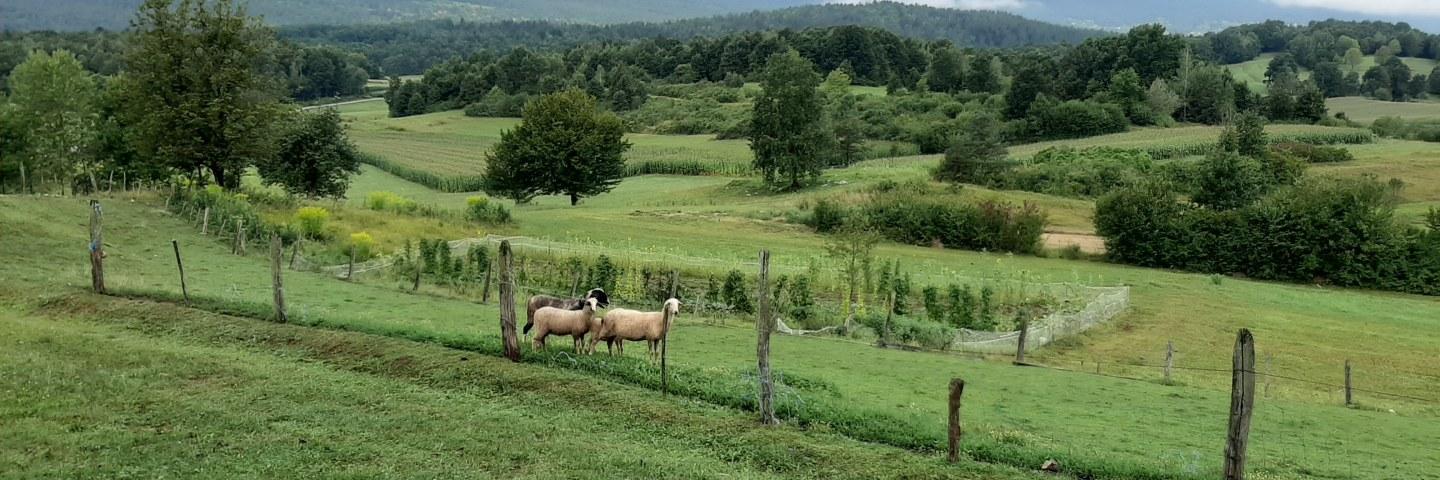PatchWORK explores the concept of work as a life-sustaining practice in the context of various subsistence modes in a rural area in Slovenia through examining intergenerational childhood memories.
The project aims to open up alternatives for sustainable and mutual coexistence within our living environments through work experiences that are intrinsically entangled and coevolving with society, the environment, and the economy. Furthermore, the project seeks to retheorize children's participation in work as not determined by purely economic rationality or educational agendas but as embedded in human and more-than-human relationality, reciprocity, and care.

Background
The world’s dominant agribusinesses and cultivation practices of over-exploitation are one of the main causes of altering the earth’s surface, deforestation, desertification, and loss of biodiversity. Anthropologist Anna Tsing characterizes this condition as “patchy Anthropocene […] the uneven conditions of more-than-human livability in landscapes increasingly dominated by industrial forms” (2019: S186). In European post-socialist semi-periphery, on the other hand, traditional agricultural land use contributes to biodiversity, which points to relational, affective, and material entanglements of human work, social relations and the natural environment. In this context, the reforestation of meadows and cultivated fields, and the associated loss of biodiversity is not so much induced by over-exploitation of land as it is brought about by deagrarisation and abandonment of land cultivation. This points to a different kind of “patchiness of the world” (Tsing 2015: 4), whereby work related to subsistence practices can be understood as a central activity placing humans in a relationship with other living things, both human and more-than-human.
Goal
PatchWORK applies an interdisciplinary approach to document local subsistence practices and knowledge by exploring intergenerational childhood memories to further our understanding about the relational ethic of entangled lives.
PatchWORK employs an innovative interdisciplinary methodology that includes sensory walks, collective biography workshops, citizen science, and secondary analysis from previous ethnographic fieldwork.
The project aims to:
- Map contemporary subsistence practices and uncover how the knowledge, relations, and ethics of care unfold through these practices.
- Examine intergenerational childhood memories of participation in work linked to subsistence practices and its related more-than-human entanglements and embedded knowledge of care.
- Analyse how do gender relations and social class relate to children’s participation and the ethics of subsistence practices (e.g., a gendered division of work and care).
- Theorize work related to subsistence practices as a central human activity which sustains life, shapes and is shaped by the environmental knowledge, ethics, and affect.
- Disseminate and communicate stories and memories of subsistence practices and knowledge, which will add to dominant discussions about sustainable futures and promote intergenerational dialogue and the transmission of knowledge.
Impact
The main outcome of PatchWORK – the retheorisation of the concept of work will contribute to scientific advances across disciplines, to the inclusion of childhood in mainstream theory, and result in the development of a knowledge base on subsistence practices and its more-than-human entanglements.
Dissemination includes two co-authored articles, an English-language monograph, texts for the public, a project website, and a museum exhibition at The Slovene Ethnographic Museum.
Funding
Funding source
This project has received funding from the European Union’s Horizon Europe under MSCA Postdoctoral fellowship (HORIZON-MSCA-2021-PF-01, grant agreement 101061450).
